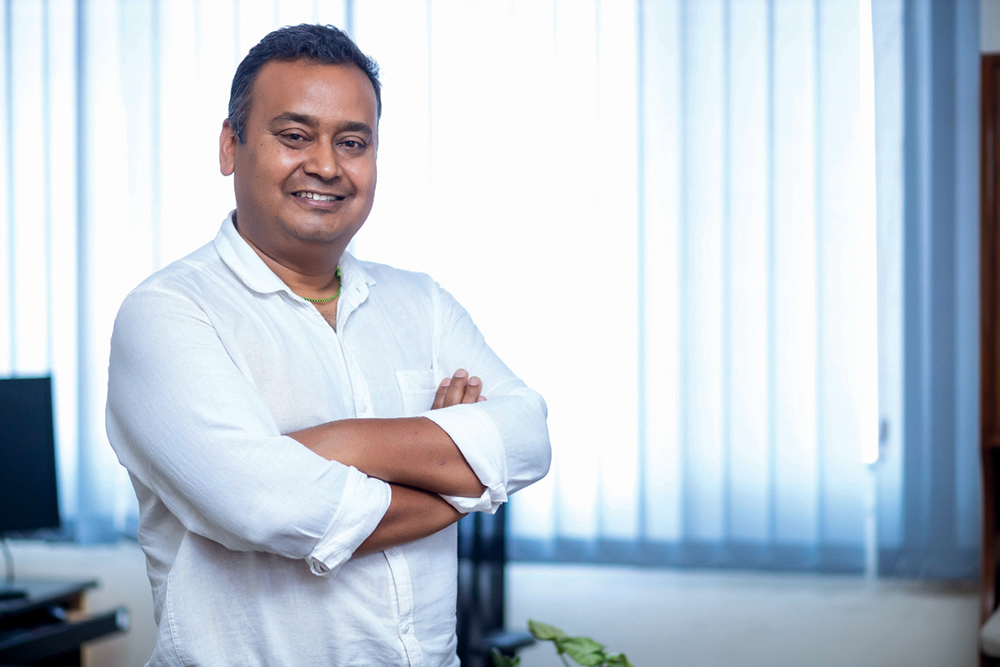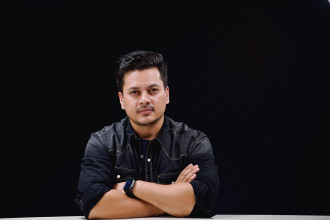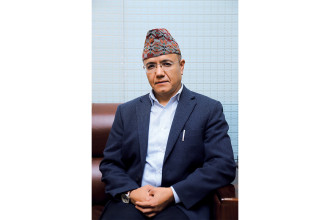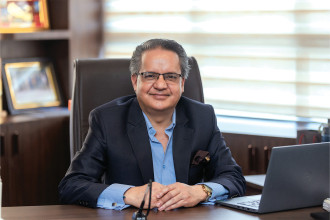
Bhusan Tuladhar
Board Member, Sajha Yatayat
Chief of Party, USAID Air Pollution Project
Bhushan Tuladhar, Board Member of Sajha Yatayat and Chief of Party, USAID Air Pollution Project, is currently engaged in making environmental changes to adhere to the climate battles. He says, in the past 30 years since he came back to Nepal from the US, he has been working in the environment space, environment mapping in mainly urban environments. He adds, “I work with garbage, I work with wastewater, basically anything dirty is my business.” Prior to being associated with Sajha Yatayat and USAID Air Pollution Project, Tuladhar also served as Chief Technical Advisor, South Asia for UN-Habitat’s Urban Basic Services Branch and was also a member of Nepal’s Climate Change Council headed by the Prime Minister. Tuladhar is also Chairperson of Environment and Public Health Organisation (ENPHO) and Clean Energy Nepal (CEN). An expert on environmental issues, Tuladhar shares that many people have placed a lot of faith in his expertise to make constant changes and recalls when he was asked to be the advisor for Kathmandu Metropolitan City which is a monumental responsibility; however, not one to back out from a challenge, he built a team to establish the City Planning Commission. “If there is one thing that everybody needs to be aware of in the current times then it is climate change and its adverse effects on humankind,” he states emphatically. In this edition of Business 360, we spoke to Tuladhar about his views on leadership and the challenges of climate change in Nepal. Excerpts:How would you define a leader?
A leader’s job is to mobilise, motivate and inspire your team to reach certain objectives. As a leader, what I want to do is design and implement programmes to achieve that and inspire my team and my partners, ensuring that they are also working in that direction. Similarly, one must possess a leadership quality and I believe that one needs to have a combination of passion and compassion. The passion to get the job done by having that commitment, and also the compassion to understand your colleagues, your team, their working style and how they are working; that is also important. You may ask: how do you balance that? Well, that’s a leader’s job and that would be how I look at the role of a leader.Is leadership ‘in-born’ or ‘acquired’?
I think it’s mostly acquired. There are certain qualities that a person may be born with but I would say that for the most part it is acquired. It’s something that you practise and develop as you go. You may have certain skills that will help you become a leader, such as you may have the ability to confidently speak in public. But then that is an ability that you can develop as well. So, for the most part, I think skills and leadership qualities are something that you develop yourself with time, experience, patience and hard work.Who comes to your mind as ‘an ideal leader’?
Dr Sanduk Ruit is the epitome of a leader with vision, compassion and integrity. His main goal is to make these lenses affordable and to address the mass scale problem with eye care. And to achieve that, he’s been passionately working, and at the same time, he is humble. He’s got compassion also. With his goal, he’s able to mobilise his whole team and in the process, he has produced other leaders. I think as a leader, you need to be able to produce other leaders.Could you share with us any incident that has tested your leadership ability?
Working with government bodies was one of the times that tested my ability. While working with the municipality, I worked at a certain speed or had certain expectations which were not aligning and then frustration grew as time went by. But one fine day, a worker told me that I was running whereas the system and the people involved are just learning to crawl. I realised that to work with a system, one has to compromise. Not everybody thinks like you do, not everybody has your same workstyle, and so on. When there is no compromise, that’s when frustration sets in. Hence while working with the municipality, I think what helped me overcome the frustration was basically looking at the problems through their eyes and putting myself in their shoes and then trying to understand how they see these issues. Also, I may have to change my style a little bit, change my way of working, or even my own goals as a leader so that you have that common vision to pursue common objectives.How can a leader prepare for the unknown?
We have to always be ready for anything that comes our way. For instance, let’s take a tissue paper roll for example, if we have a look at it from the top, we might see it from a different angle and the same goes when seeing it from afar. To understand what the material is or to see the quality we have to inspect it closely as well, hence, there are always two perspectives. One is the bird’s eye view to understand and one is the worm’s eye view. The two perspectives will help you understand the situation from top-down and bottom-up. To understand the worm's eye, we have to be in their shoes and look at the situation, and a bird eye view to understand where the gaps and the loopholes are. Therefore, having perspective and an open mind in any situation can help one prepare for any obstacles.How do you drive solutions in the community?
One, I would say that there are a lot of solutions out there that people aren’t seeing. A lot of people see the pollution, but not the solution, right? Because the pollution is visible, it’s easier to talk about and easier to complain about; but to find the right solutions one has to make an investment. Investment in time, effort or money. So that’s something I would like to promote; to give solutions. We constantly complain about the increase in use of plastic but people still do not carry a reusable bag with them. I believe that it’s easy to nit-pick a problem but to look at and accept it and find a solution is even more crucial. Hence, my effort has always been to mitigate a problem with a solution, people must understand that complaining and pointing fingers will not lead us anywhere. We always blame the government but we all are a part of it. If you as an individual have a solution, reach out to your local government and seek their initiative no matter what the subject of the solution is. Our local government is our first friend when making changes in the environment and surroundings we live in. READ ALSO:- ‘Confidence to tackle difficult situation is the most valuable quality a leader can possess’
- ‘If we were to call ourselves a leader, our best is tested during times of adversity’
- ‘Leadership is acquired by observation, by practice’
- ‘We have been able to create jobs for 70,000 Khalti Agents and 300+ team members’
Published Date: June 28, 2023, 12:00 am
Post Comment
E-Magazine
RELATED Leadership





-(1)-1752214965.jpg)